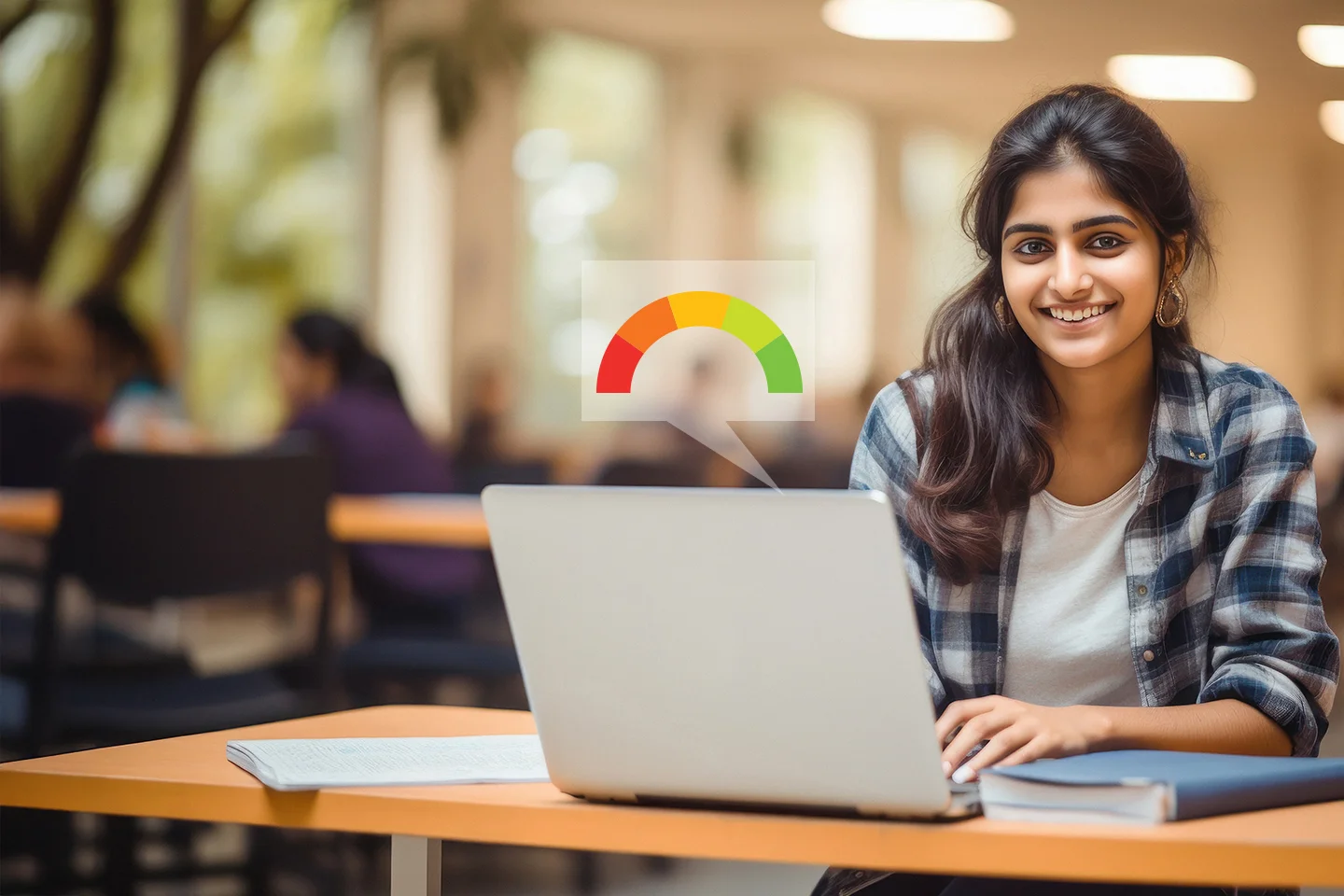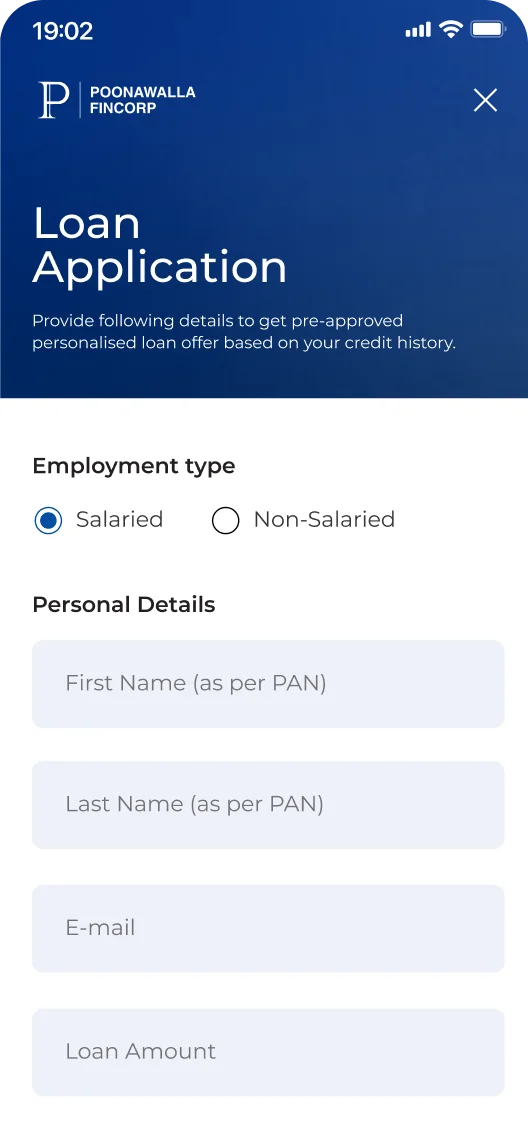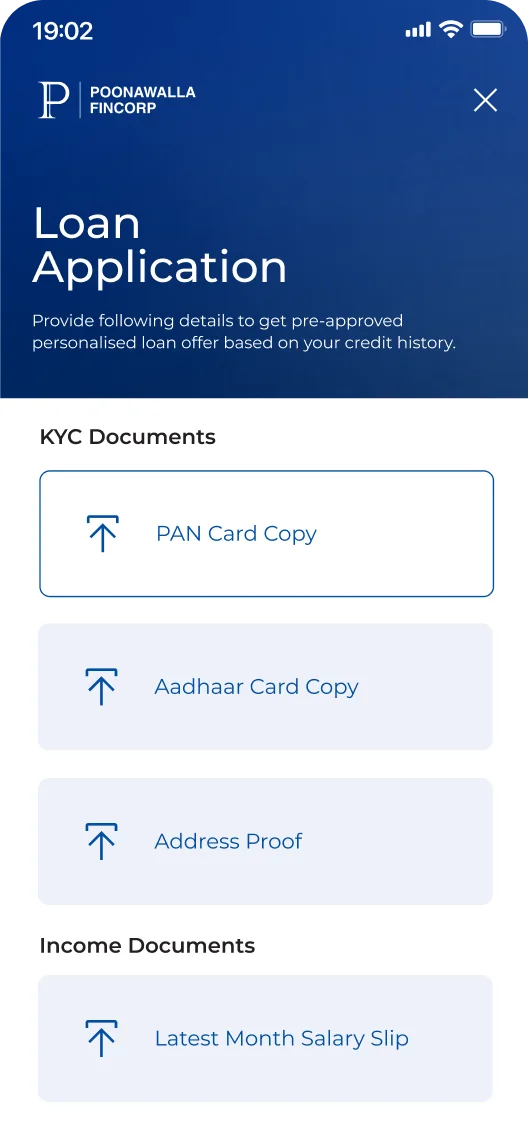Why is CIBIL Score Important to Get an Education Loan
Having a good CIBIL score is crucial when applying for an Education Loan because it shows your creditworthiness to financial institutions and lenders. A high CIBIL score indicates responsible financial behaviour and gives lenders confidence in your ability to repay the loan on time. With a strong credit score, you are more likely to be approved for a higher loan amount and at a lower interest rate, ultimately making your educational aspirations more affordable.
Minimum CIBIL Score for Education Loan
The minimum CIBIL score required to secure an Education Loan is 750 or above. Maintaining a score of 750 or higher shows lenders that you are a reliable borrower and increases your chances of getting approved for the loan. If you have a low CIBIL score, say 700, having a co-applicant with a strong credit history or providing collateral can significantly improve your approval chances.
Before applying for an Education Loan, it’s important to understand the basic eligibility requirements set by most lenders. Here are the key criteria you should be aware of:
-
Nationality: The applicant must be an Indian citizen.
-
Age: Should generally be 18 years or above at the time of application.
-
Admission Status: Must have secured admission to a recognised institution in India or abroad.
-
Co-applicant Requirement: A co-applicant (parent, guardian, or spouse) is usually required for the loan.
-
Co-applicant’s Financial Background: The co-applicant should have a stable income source and a good credit history.
-
Academic Performance: Academic performance and past records are taken into account.
Here are a few things you must keep in mind before applying for an Education Loan:
-
Estimate Your Funding Requirement: Determine how much you need to cover any educational costs; this will give you a clear understanding of your financial needs. Plus, you can avoid borrowing more than necessary and minimise your financial burden in the long run.
-
Minimum and Maximum Funding Available: Different lenders have varying minimum and maximum loan limits for education loans. Ensure that the loan amount you are eligible for is sufficient to cover all your educational expenses, especially if you have valuable assets to protect.
-
Rate of Interest: It's crucial to compare the interest rates offered by different lenders and choose a loan with the most competitive rate. Remember, a lower monthly interest rate translates to lower EMIs and a reduced overall interest over the loan period.
-
Requirement of Collateral: Before applying for a loan, check if the lender requires any form of security and assess if you're comfortable meeting the collateral requirements. Be sure to understand the consequences of defaulting on the loan and the potential risk to your assets.
-
Pre-payment or Foreclosure Charges: In case you want to foreclose your loan, it's essential to understand the loan terms and conditions related to pre-payment and foreclosure charges and factor them into your repayment strategy.
-
Repayment Tenure: When selecting an Education Loan, check the repayment tenure offered by the lender. Opt for a flexible repayment schedule that aligns with your financial goals and repayment capacity.
You can check your CIBIL score in 3 easy steps:
Step 1: Visit Poonawalla Fincorp’s official website.
Step 2: Click on the ‘Free CIBIL Check’ button.
Step 3: Fill in the required details and submit.
Your CIBIL score will be visible on your screen. Your CIBIL report will also be sent to your registered mobile number and email ID.
If you have a low CIBIL score, you can significantly improve your chances of Education Loan approval by taking a few strategic steps:
-
Apply with a creditworthy co-applicant whose strong financial background and excellent credit history can provide the reassurance lenders need.
-
Consider approaching lenders who evaluate applications based on future earning potential rather than focusing solely on past credit history, as this approach can work in your favour.
-
Have a payment plan for existing loans to improve the CIBIL score and demonstrate your commitment to financial responsibility.
-
Avoid applying for new loans immediately after a rejection to protect your CIBIL score since each loan denial reduces your CIBIL score, making future applications more difficult.
Happy Customers, Happy Us


Throughout my loan journey, the Poonawalla Fincorp team showcased exceptional dedication, in-depth product knowledge, and a truly customer-centric approach. At every stage, they guided me with patience and clarity, making the entire process seamless, transparent, and timely. Their proactive communication and unwavering willingness to go the extra mile are a testament to the organization’s high standards of service excellence. Such professionalism not only fosters strong customer trust but also reinforces Poonawalla Fincorp’s reputation as a leading, customer-focused financial institution. I extend my heartfelt thanks to the entire team for their commendable efforts and wish them continued success in all their endeavors.


I am incredibly grateful for the outstanding support I received throughout my loan process. The guidance provided made every step feel manageable and stress-free. What stood out most was the humility and genuine willingness to help at every stage, qualities that made a significant difference in my experience. Without this support, the journey would have been far more challenging. I truly appreciate the dedication and helpful nature that was consistently demonstrated. The efforts put forth were invaluable, and I feel fortunate to have worked with someone so committed and supportive.


It was really great working with Poonawalla Fincorp. Thanks to the support and coordination by the team. I was able to get a significant portion of my requirements despite having a bit of a mess in my financial records. The loan processing and disbursement process at Poonawalla Fincorp was super smooth. They were incredibly cooperative and helpful. I’m looking forward to building a healthy relationship with them in the future. Thank you.


Poonawalla Fincorp’s Pre-owned Car Loan made the entire financing process effortless. The loan approval was quick, and the minimal documentation made it even more convenient. Within just a couple of days, the funds were disbursed, allowing me to purchase a well-maintained pre-owned vehicle without any hassle. The repayment options were flexible, and the entire experience was seamless. Thanks to Poonawalla Fincorp, I could get my car without any financial strain. Highly recommended!


Securing a loan to purchase a commercial property with rental income was crucial for my business. Having previously worked with Poonawalla Fincorp, I was confident in their services. The process was incredibly smooth and transparent. The quick disbursement and excellent post-sales support made the entire experience stress-free. Thanks to Poonawalla Fincorp, I now own a prime commercial property in Mumbai, which has significantly boosted my business. Their quick turnaround time and excellent post-sales support made all the difference. I wholeheartedly recommend them to anyone in need.


I had a great experience with Poonawalla Fincorp’s Pre-owned Car Loan. The offered loan amount was as per my expectations, and the entire process was smooth and hassle-free. The documentation was minimal, and the loan was disbursed in just two days! What stood out was the flexibility—repayment was easy, and the EMI structure was well-planned. The loan approval process was straightforward, making it convenient to get the car I wanted without any delays. Overall, the service was excellent, and I highly recommend Poonawalla Fincorp to anyone looking for an easy and quick loan process!


A friend in need, is a friend indeed. Poonawalla fincorp has been like one of those friends for me, who has supported me in my journey. With no hidden charges and no prepayment charges, the company has provided me with the adequate funds I needed for me professional practice. From the loan application process to the disbursal of funds, I did not face any problems. My experience was hassle-free and smooth. Not just me, all my fellow professionals and friends have had a wonderful experience with Poonawalla Fincorp’s Professional Loan.


I am practicing Chartered Accountant (CA) based out of Hubli. There were working capital issues that i was facing like upgrading my firm’s overall infrastructure, hiring well-qualified staff and digitization. Poonawalla fincorp hab been of great support when it comes to funding these requirements. I’ve got one of the best interest rates available in the market, my documentation process was fast & hassle-free. and the digital application process made it very simple to get a Professional Loan as a CA. I recommend to CAs to consider Poonawalla Fincorp for their working capital or any other funding requirements.


I run a chain of farmacy stores with 5 branches in pune. With the growing polpularity of home delivery, my customers were expecting the same from me as well. However, the extra capital requirement made it difficulf for me to hire delivery persons. With Poonawalla fincorp’s Business loan, I am now able to compete with online pharmacy retailers, manage working capital and upgrade my system. My customers have grown 50-60%. The loan applicatipn process is digital, simple and speedy. I was delighted to get my loan amount disbursed quickly, allowing me to upgrade my operationg seamlessly.
Get Exclusive Access to Simplified
Personal Finance Information at
Poonawalla Fincorp’s FinHub
Frequently Asked Questions
A CIBIL score is a three-digit number (300-900) calculated based on your credit behaviour. The calculation takes into consideration credit utilisation, whether you make timely repayments, your credit history length, types of credit accounts, and recent credit enquiries.
Typically, the minimum CIBIL score for an Education Loan is around 750. But it also depends on the lender and other factors such as your credit report, the loan amount, collateral, etc.
Yes, you can get a secured loan for an Education Loan with a low CIBIL score, though it could be challenging. Look for possible alternative lenders providing collateral or explore government schemes that might be available. You can also work on improving your CIBIL score before applying.
Check your CIBIL score annually for regular monitoring to ensure your financial stability. Make sure you review it a few months before applying for your Education Loan to ensure accuracy.
No, there are no legitimate quick fixes for improving your credit score. Building a good credit history requires time, consistency, and responsible financial management practices.
Maintaining a good credit mix and credit card usage of 30% helps maintain a good CIBIL score. Other than this, paying all bills and EMIs on time, having a healthy mix of credit accounts and avoiding closing old credit accounts helps maintain a good credit score.
Yes, many lenders consider the credit score of the parent or guarantor when a student applies for an education loan without a credit history. Most lenders prefer a co-applicant's CIBIL score to be at least 750 to approve an education loan application. A low CIBIL score, or low credit score, may further negatively affect loan approval and interest rates.




